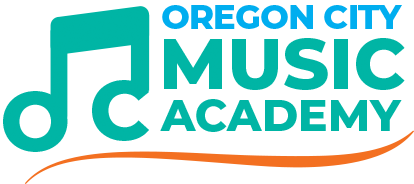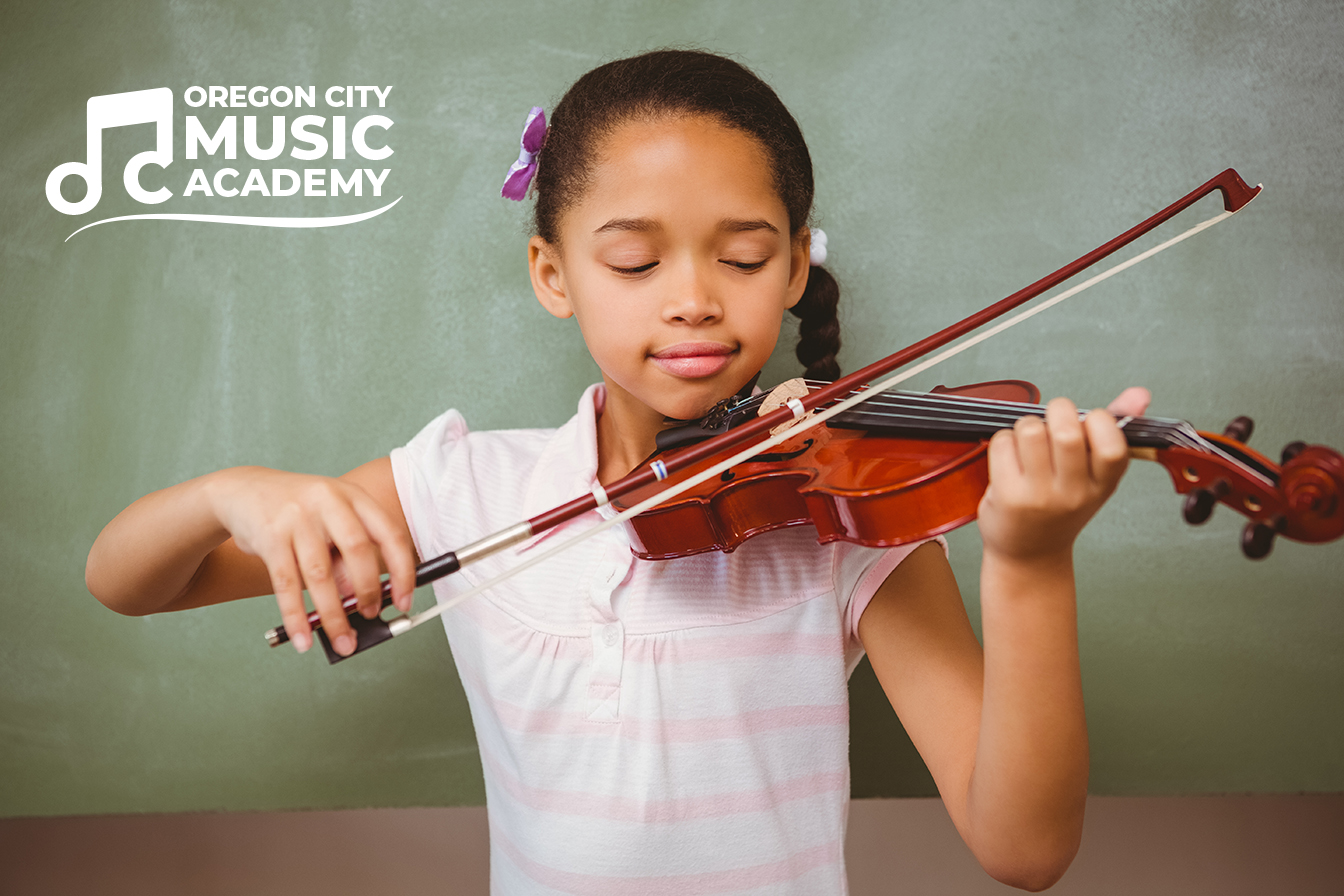Parents often search for the best ways to give their children a head start in life. One of the most impactful opportunities is early exposure to music classes for kids. Learning an instrument at a young age doesn’t just introduce children to the joy of music—it builds cognitive skills, emotional intelligence, and discipline that benefit them for a lifetime.
At Oregon City Music Academy, we believe that music is more than just an extracurricular activity; it’s an investment in your child’s future. Whether they choose to learn the piano, violin, cello, guitar, electric violin, mandolin, or ukulele, starting music lessons early can set them up for lifelong success.

1. Music Lessons Strengthen Cognitive Development
Scientific studies consistently show that learning an instrument enhances brain function. Children who participate in children’s music classes develop:
🎵 Better memory retention – Music strengthens both short- and long-term memory.
🎵 Stronger problem-solving skills – Reading sheet music and coordinating finger movements improve logical thinking.
🎵 Enhanced math and reading abilities – Studies link musical training to higher achievement in school subjects.
A study published in The Journal of Neuroscience found that children who start music education before age seven develop stronger brain connections related to motor skills, auditory processing, and spatial reasoning.
Starting lessons early—whether it’s the piano or the violin—gives children an academic advantage that lasts well into adulthood.

2. Early Music Education Boosts Confidence and Self-Esteem
Confidence is a critical skill for lifelong success, and children’s music lessons help build it in powerful ways. Learning an instrument teaches children to set goals, overcome challenges, and celebrate achievements.
At Oregon City Music Academy, we’ve seen countless students transform from shy beginners to confident musicians. Whether they’re strumming a guitar, playing their first table harp melody, or performing on the electric violin, each milestone fosters a sense of pride and self-assurance.
🎵 Performing in front of others helps children develop stage presence and social confidence.
🎵 Achieving small musical victories teaches perseverance and goal-setting.
🎵 Overcoming mistakes and challenges helps kids develop resilience.
These confidence-building experiences extend beyond music, positively influencing academics, sports, and personal interactions.

3. Music Classes Help Kids Develop Emotional Intelligence
Music is an expressive art form that allows children to connect with and understand emotions. Whether playing a soulful tune on the cello or a joyful melody on the ukulele, children learn to interpret feelings through sound.
Benefits of emotional development through music:
🎵 Helps children manage stress and anxiety.
🎵 Encourages emotional expression and creativity.
🎵 Develops empathy and listening skills.
Students who take music classes for kids at an early age often exhibit stronger emotional regulation and interpersonal skills, making them more adaptable in both social and academic settings.

4. Learning Music Improves Focus and Discipline
Music lessons require patience, practice, and attention to detail. By committing to regular music classes, children develop essential life skills like:
✔️ Time management – Setting aside practice time teaches scheduling and prioritization.
✔️ Perseverance – Working through challenges helps children learn to stay committed.
✔️ Active listening – Essential for both music and effective communication in life.
Children who start piano, violin, or guitar lessons early become more disciplined learners, a trait that benefits them in school, sports, and their future careers.

5. The Benefits of Starting Music Lessons at a Young Age Last a Lifetime
While many activities provide short-term benefits, music education fosters skills that last well beyond childhood. Many successful professionals—whether in music, medicine, law, or business—credit early music education with helping them develop:
🎵 Critical thinking abilities – Music enhances analytical skills useful in problem-solving careers.
🎵 Strong work ethics – Commitment to practicing an instrument carries over into professional life.
🎵 Creativity and adaptability – Essential traits in today’s rapidly evolving world.
Children who start music lessons early are more likely to become lifelong learners, embracing new challenges with enthusiasm and resilience.

Why Start Music Lessons Now?
Early 2025 is the perfect time to introduce your child to music classes. By starting now, they will have the entire year to build their skills, develop discipline, and experience the joy of learning an instrument.
At Oregon City Music Academy, we offer expert instruction in:
🎻 Violin, Viola, and Cello – Perfect for students who love classical and orchestral music.
🎹 Piano – A foundational instrument for building musical knowledge and technique.
🎸 Guitar & Electric Guitar – Great for kids who want to explore rock, pop, or acoustic styles.
🎶 Ukulele & Mandolin – Fun, accessible options for younger learners.
🎵 Electric Violin & Table Harp/Kantele – Unique choices for kids who want to experiment with sound.
Starting lessons early in the year ensures children stay engaged and motivated throughout 2025, helping them reach their full potential.

Give Your Child the Gift of Music: Enroll Today!
Invest in your child’s future by enrolling them in children’s music lessons today! Whether they choose the piano, violin, guitar, ukulele, cello, or mandolin, they’ll gain skills that will benefit them for a lifetime.
🎵 Contact us today at (503) 880-4880 to schedule an appointment, text us, or use our convenient online form to enroll. Give your child the head start they deserve!


